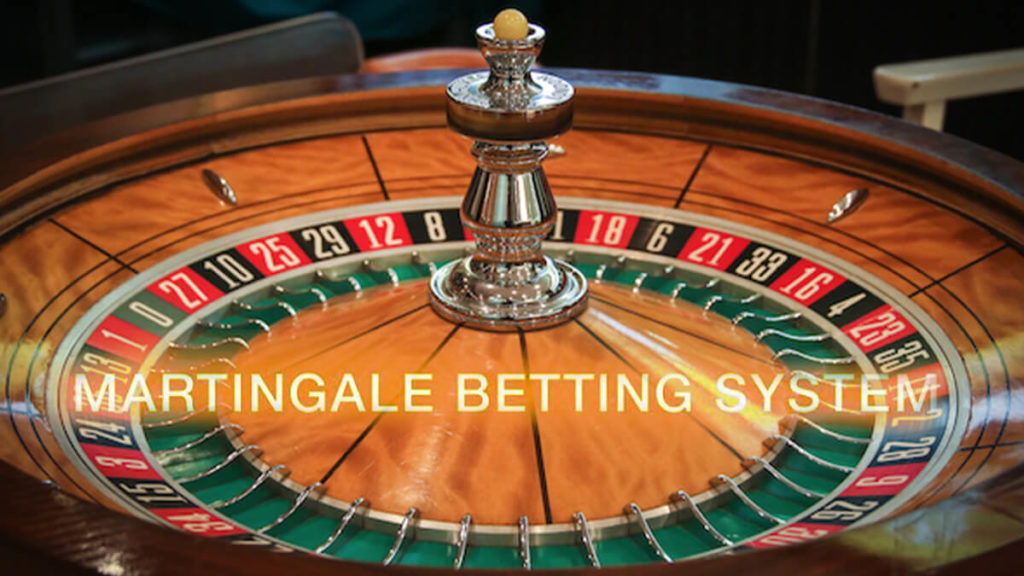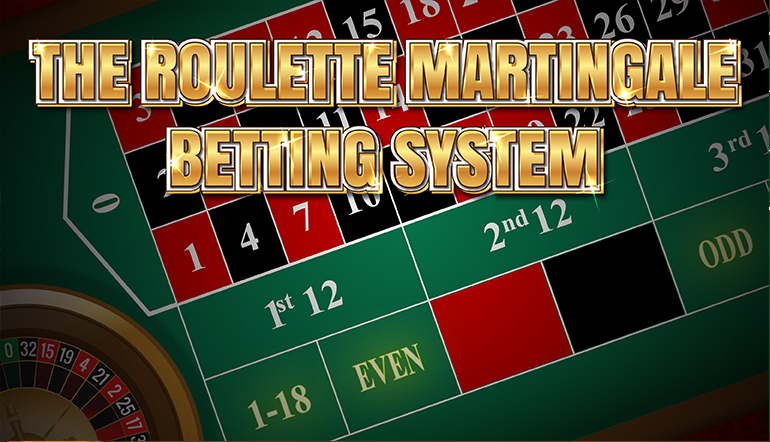The Martingale strategy is a betting system commonly used in casino games such as roulette, craps, and blackjack. The strategy involves doubling your bet after each loss in an attempt to recover your losses and make a profit. The idea behind the Martingale strategy is that eventually, you’ll win a bet, and the winnings will be enough to recover all of your previous losses and make a profit. For example, if you start with a $1 bet and lose, you’ll double your bet to $2 on the next spin. If you lose again, you’ll double your bet to $4, and so on.

The Martingale strategy is most commonly used in games with even-money bets, such as red/black or odd/even in roulette. These bets have a 50/50 chance of winning, which makes them ideal for this betting system. While the Martingale strategy can be effective in theory, it requires a significant bankroll to maintain the bets after consecutive losses. Additionally, there is no guarantee that you’ll win on the next spin, leading to a situation where you may be doubling your bets indefinitely. As with any form of gambling, it’s essential to gamble responsibly and only with money you can afford to lose.
How Does This Strategy Work?
The Martingale strategy is a betting system that originated in France in the 18th century and is commonly used in casino games such as roulette, craps, and baccarat. The roulette strategy is based on the idea that if you keep doubling your bet after every loss, eventually you will win and recoup all of your losses, plus a small profit. Here’s how the Martingale strategy works:
- Start with a small bet. Let’s say you start with a $1 bet.
- Double your bet after every loss. If you lose the first bet, double your bet to $2. If you lose again, double it to $4, and so on.
- Keep doubling until you win. Eventually, you will win a bet and recoup all of your losses, plus a small profit equal to your original bet.
- Start over with a small bet. Once you win, start over with a small bet and repeat the process.
The theory behind the Martingale strategy is that you will eventually win, and when you do, you will recoup all of your losses and make a small profit. However, there are several problems with this strategy. First, most casino games have a table limit, so you may not be able to keep doubling your bet indefinitely. Second, even if you have an unlimited bankroll, the odds of a long losing streak are high, and you could end up losing a lot of money before you finally win. Finally, the Martingale strategy does not take into account the fact that most casino games have a built-in house edge, which means that over the long run, the casino will always win.
Advantages of the Martingale Strategy
While the Martingale betting strategy is not recommended for serious gamblers, there are a few potential advantages to the system:
- Simple to Understand: The Martingale betting strategy is very simple to understand, making it a popular choice for beginners. It involves doubling your bet after each loss and returning to your original bet size when you win.
- Potential for Small Profits: With the Martingale strategy, you can potentially make a small profit with each winning bet. If you have a streak of several consecutive losses followed by a win, you can recoup all your losses plus a small profit.
- Can be Used for Multiple Games: The Martingale system can be used for various games, including roulette, baccarat, and craps. This makes it a versatile strategy for those who want to try their luck at different games.
However, it is important to note that the Martingale system is a high-risk betting strategy and can result in significant losses if you experience a long losing streak. Additionally, many casinos have a maximum bet limit, which means that you may not be able to double your bet indefinitely, and the house edge ensures that the casino always has an advantage over the player. As such, the Martingale system is not a reliable or recommended strategy for long-term gambling success.

Disadvantages of the Martingale Strategy
While the Martingale betting strategy may seem appealing to some, there are several significant disadvantages to the system that serious gamblers should consider:
- High Risk: The Martingale system is a high-risk betting strategy that involves doubling your bet after each loss. This can result in significant losses if you experience a long losing streak.
- Not Guaranteed to Win: While the Martingale system can result in small profits, it is not a guaranteed way to win. The system is based on the assumption that you will eventually win, but this is not always the case. If you experience a long losing streak, you can lose a lot of money.
- Limited by Table Limits: Most casinos have table limits, which means that you may not be able to double your bet indefinitely. This can limit the effectiveness of the Martingale system.
- House Edge: The Martingale system does not take into account the house edge, which means that over the long run, the casino will always win. This makes it an unreliable strategy for long-term gambling success.
- Bankroll Limitations: To use the Martingale system effectively, you need a large bankroll to cover your losses. If you don’t have a sufficient bankroll, you may not be able to double your bet after each loss and could run out of money before you have a chance to win.
Overall, the Martingale betting strategy is a high-risk system that is not recommended for serious gamblers. While it may be appealing to beginners because of its simplicity, the potential for small profits, and its use in multiple games, the significant disadvantages of the system make it an unreliable and risky way to gamble.
Different Variations of the Martingale System
Variations of the Martingale strategy have been developed to mitigate some of these risks, including:
- Reverse Martingale: This variation of the strategy involves doubling your bet after each win instead of after each loss. This can be less risky than the traditional Martingale strategy, as you are only increasing your bet when you are winning.
- Grand Martingale: This variation of the strategy involves not only doubling your bet after each loss but also adding an additional unit to your bet. For example, if you start with a $1 bet and lose, your next bet would be $3 ($1 + $2), and if you lose again, your next bet would be $7 ($1 + $2 + $4).
- Anti-Martingale: This variation of the strategy involves halving your bet after each loss and doubling it after each win. The idea behind this strategy is that you will be able to ride a winning streak and minimize your losses during losing streaks.
- D’Alembert System: This variation of the strategy involves increasing your bet by one unit after each loss and decreasing it by one unit after each win. The goal is to slowly build up your bankroll while minimizing your losses.
It’s important to note that while these variations of the Martingale strategy can be less risky than the traditional strategy, they are not foolproof and can still result in significant losses. It’s always important to gamble responsibly and within your means.
Martingale Strategy in Roulette
The Martingale strategy is a betting system that is often used in roulette, a popular casino game where a ball is spun around a wheel and players bet on where the ball will land. The Martingale strategy involves doubling your bet every time you lose with the aim of recouping your losses and making a profit. In the context of roulette, the Martingale strategy involves betting on even money bets, such as red or black, even or odd, or high or low. The idea is to place a bet on one of these options and double the bet after each loss until you win. Once you win, you start over with your original bet.
For example, let’s say you start with a $10 bet on red. If the ball lands on black, you would double your bet to $20 on your next spin. If the ball lands on black again, you would double your bet to $40 on your next spin. However, if the ball lands on red, you would win $40, which would cover your previous losses and give you a $10 profit.

While the Martingale strategy can be effective in theory, in practice it can be risky, as it assumes that you have an unlimited bankroll and that you will eventually win. Additionally, in roulette, there is always the risk of hitting the table limit before you are able to recoup your losses, which can make the strategy ineffective. It’s always important to gamble responsibly and within your means, and to be aware of the risks involved in any betting system, including the Martingale strategy.
